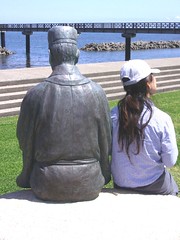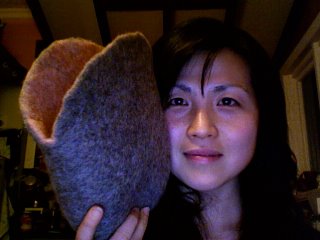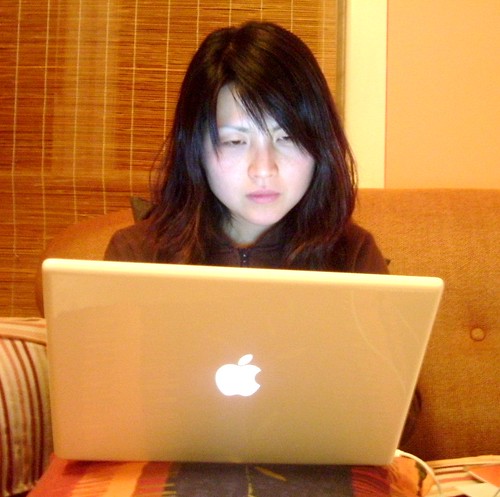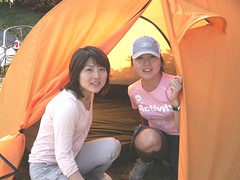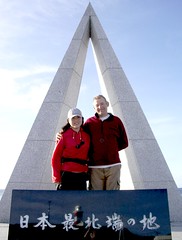
I haven't introduced myself properly to you, have I? I'm a Japanese who is doing PhD in psychology at the University of Otago in New Zealand. I came to NZ in 1999 and have been here since then. My husband is a Dutch-Kiwi, who isn't a typical Kiwi who loves rugby and beers. Instead, he is into sumo and Haiku, and knows some aspects of Japanese culture better than me. We cycled the length of Japan last year, which was broadcast on local Kumamoto TV, RKK. For those who missed our footage and for our own sake, my husband set up a
blog about the trip.
I've just submitted my 6-month self report review to my supervisor, which was the first substantial writing I did since I've started my PhD. My interest is in happiness (well-being in psychology term), and I'm looking at the relationship between life goals and various types of well-being (yes, there is more than one type of well-being!). You might ask why I chose this theme for my PhD? It occurred to me, one day, that everyone seems to be ultimately pursuing happiness, no matter what activities or work they choose to engage in. However, the pursuit has proven to be elusive, as not so many people are full heartedly content with their lives.
From the evolutionary perspective, we humans are not designed to be happy, but to keep on reproducing even in the state of misery. Also, some researchers argue that there is a biological set point of happiness which is rather stable across one's life span. In contrast, some argue that we are endowed with the capacity to experience happiness (positive affects), because that helps us to build our personal resources and thus a greater chance for survival. In modern society, we are bombarded with so much information and images every day, which portrait happy people who appear to be on top of the world. It's likely that the gap between the escalated expectation and reality makes people dissatisfied. However, that dissatisfaction does not put people off, but spurs people to try harder.
I can keep on going talking about happiness, but I'll leave you with the following quote for now.
"If you win a rat race, you are still a rat".
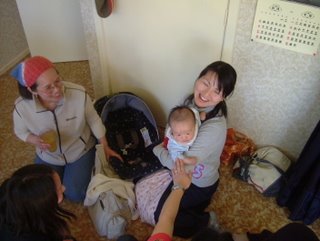 In the last couple of years, we had a baby rush in Dunedin, particularly of Japanese Mums. Most babies are half Japanese and half Kiwis, Australians, English, Dutch, etc. Thus, their apperance is quite unique; some of them have Asain features, but with pale complexion, light brown hair (natural, not dyed!), and light eye colour, whilst some have more European features, but with some Asian touch. The end results, in bose cases, are very handsome kids. These little ones are thriving and so are their Mums. Now, there are a few Japanese Mums' groups in which members not only excahnge information about child rearing, but also they give each other mutual support . Looking at those babies and their Mums, I'm very much encouraged to have my own in the (hopefully) near future.
In the last couple of years, we had a baby rush in Dunedin, particularly of Japanese Mums. Most babies are half Japanese and half Kiwis, Australians, English, Dutch, etc. Thus, their apperance is quite unique; some of them have Asain features, but with pale complexion, light brown hair (natural, not dyed!), and light eye colour, whilst some have more European features, but with some Asian touch. The end results, in bose cases, are very handsome kids. These little ones are thriving and so are their Mums. Now, there are a few Japanese Mums' groups in which members not only excahnge information about child rearing, but also they give each other mutual support . Looking at those babies and their Mums, I'm very much encouraged to have my own in the (hopefully) near future.
